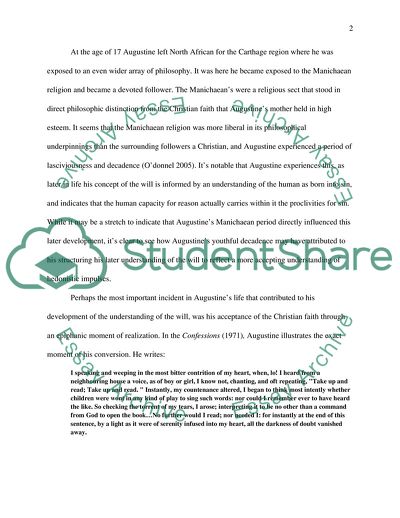Cite this document
(Augustine's Concept of Will Essay Example | Topics and Well Written Essays - 2500 words, n.d.)
Augustine's Concept of Will Essay Example | Topics and Well Written Essays - 2500 words. Retrieved from https://studentshare.org/philosophy/1731884-critically-discuss-augustines-concept-of-the-will
Augustine's Concept of Will Essay Example | Topics and Well Written Essays - 2500 words. Retrieved from https://studentshare.org/philosophy/1731884-critically-discuss-augustines-concept-of-the-will
(Augustine'S Concept of Will Essay Example | Topics and Well Written Essays - 2500 Words)
Augustine'S Concept of Will Essay Example | Topics and Well Written Essays - 2500 Words. https://studentshare.org/philosophy/1731884-critically-discuss-augustines-concept-of-the-will.
Augustine'S Concept of Will Essay Example | Topics and Well Written Essays - 2500 Words. https://studentshare.org/philosophy/1731884-critically-discuss-augustines-concept-of-the-will.
“Augustine'S Concept of Will Essay Example | Topics and Well Written Essays - 2500 Words”. https://studentshare.org/philosophy/1731884-critically-discuss-augustines-concept-of-the-will.


